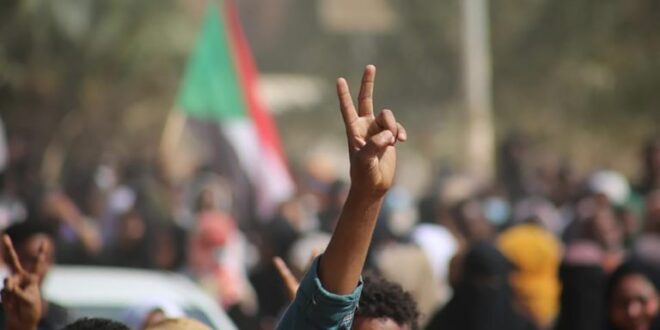A leading Sudanese Army general announced a state of emergency and the dissolution of the joint civilian-military government, signaling a coup that would halt the country’s fragile political transition to democracy.
Members of the brutal militia commanded by Mohamed Hamdan Dagalo (aka “Hemedti”), the Rapid Support Forces (RSF), were patrolling bridges and other key infrastructure around Sudan’s capital, Khartoum.
A significant driver of instability is the precarious nature of Sudan’s economy; the country is suffering from widespread inflation and nationwide shortages of food, fuel, and medicine.
The situation presents a major challenge to the Biden administration, which pledged to assume a more involved role in promoting democracy.
Sudanese Army Lieutenant General Abdel Fattah al-Burhan appeared on state television yesterday to announce a state of emergency, prompting an immediate outpouring of protests from pro-democracy demonstrators. The declaration of the state of emergency also effectively dissolved the country’s transitional government, imperiling an already fragile political transition to democracy. Over the past two weeks, there have been both pro-democracy and pro-military protests convulsing the country. Prime Minister Abdalla Hamdok was reported missing, with speculation that he was kidnapped, along with his wife, by the Sudanese military. Other members of the Transitional Sovereignty Council and top cabinet ministers were also reportedly detained. Just last weekend, U.S. special envoy for Sudan Jeffrey Feltman met with Hamdok and other members of the current government to discuss the details of a civilian democratic transition in Sudan. The country has slowly made steps over the last two years toward normalization of diplomatic relations, including being removed from the U.S. state sponsors of terrorism list last year.
The military announced the formation of a caretaker government and suggested that elections would proceed in July 2023. Members of the notoriously brutal militia commanded by Mohamed Hamdan Dagalo (aka “Hemedti”), the Rapid Support Forces (RSF), were patrolling bridges and other key infrastructure around Sudan’s capital, Khartoum. Civilians established their own roadblocks and burned tires to demonstrate against the coup, and some reports suggested that the security forces opened fire on protesters with live ammunition. Several have been reported dead and dozens wounded. Communications throughout the country have been interrupted, including access to the internet, and flights suspended. Sudan has faced a tumultuous political transition since the ouster of its longtime dictator, Omar al-Bashir, following the 2019 democratic protest movement. Al-Bashir is currently jailed in Sudan and has been indicted by the International Criminal Court (ICC) for his role in the atrocities in the Darfur region of Sudan. This latest development occurs just weeks prior to the anticipated rotation of leadership in the sovereignty council of the joint civilian-military government, which would have shifted authority to civilian leadership for the first time since 1989.
One significant driver of instability is the precarious nature of Sudan’s economy. With widespread inflation and countrywide shortages of food, fuel, and medicine, there is mounting pressure on the government to improve the lives of ordinary citizens. However, the government remains dependent upon the U.S. and other Western nations for financial support. The U.S. committed to sending $377 million in aid to Sudan this year alone, making Washington the biggest donor. The International Monetary Fund (IMF) has agreed to forgive over $50 billion in Sudan’s external debts over the next three years. Still, stringent conditions attached to debt forgiveness have contributed to internal strife in the country. The military reportedly still maintains a stranglehold over key economic sectors, including construction, agriculture, and gold mining. Protests in eastern Sudan that have blocked activity at the Port of Sudan have further exacerbated economic conditions in the country; the local leader announced his intention on Monday to end this campaign. In response to the coup, U.N. Secretary-General Antonio Guterres tweeted his support for the Sudanese people—”There must be full respect for the constitutional charter to protect the hard-won political transition.”
The European Union’s foreign policy chief Josep Borrell commented that, “the actions of the military represent a betrayal of the revolution, the transition, and the legitimate requests of the Sudanese people for peace, justice, and economic development.” The situation presents a major challenge to the Biden administration, which pledged to assume a more involved role in promoting democracy. Special envoy Feltman sent a clear message to the would-be coup plotters, noting that “any changes to the transitional government by force puts at risk U.S. assistance.” So far, Washington has not labeled the recent events as a “coup,” although State Department spokesperson Ned Price suggested that the U.S. would be halting economic assistance immediately. For Khartoum, external assistance is a lifeline, and without continued financial support, few doubt that the country would implode, leading to a new wave of violence and suffering. Civilian protesters remain on the streets of Khartoum, persisting in their adamant pursuit of representative governance despite this staunch move by military leadership.
 Eurasia Press & News
Eurasia Press & News




